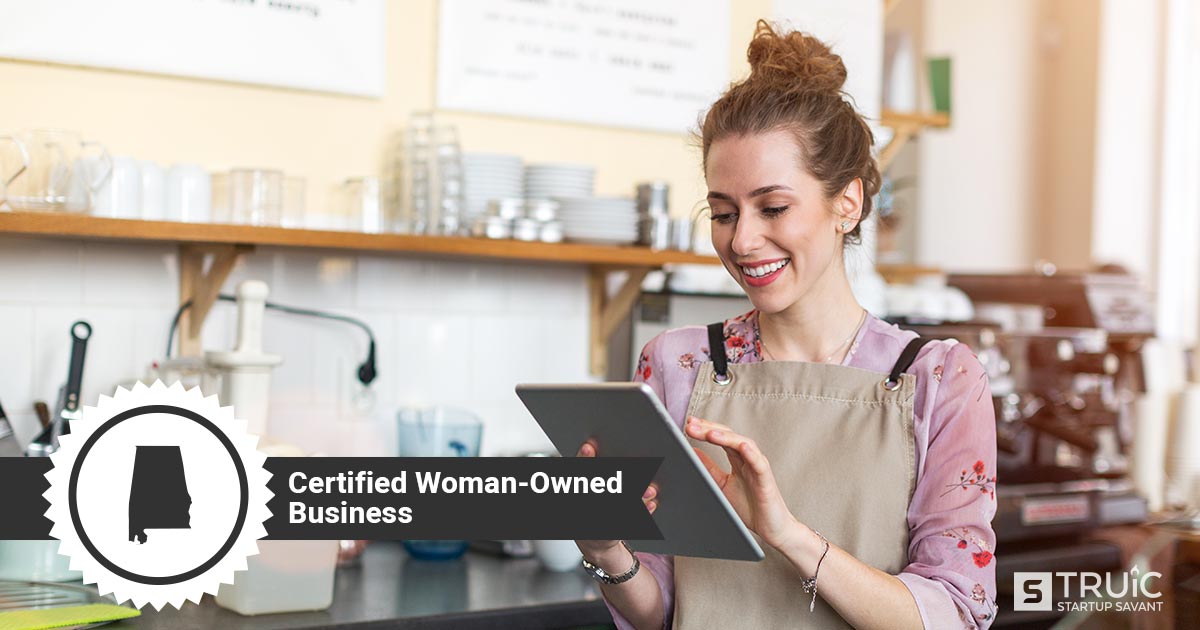As long as your business is primarily owned and managed by women (at least 51%), you may have the option to apply for a woman-owned business certification in Alabama and gain access to additional businesswomen resources. Becoming certified can make it easier to do business with major corporations and the government (state and local). If you offer a product or service that these entities can use, it may be the right time to advance your company to a new echelon.
If you’re new to the women-owned business certification process though, applying and being approved in Alabama can be complicated, especially if you’re not sure if you’d be better off with a federal or state certification; however, we’re here to help simplify the steps.
If you’re ready to learn more about the process, we’ve looked into the details for you. Find out what you can do to prepare for woman-owned business certification before you leap in.
How To Use Our Guide:
We've narrowed down the Women-Owned Business certification process. There are many resources (e.g. WBE or SBA) that will help with your application.
Follow our guide to learn more about how to become a certified Woman-Owned Business in Alabama.
What Is a Certified Woman-Owned Business?
A woman-owned business certification is a program created to make it easier for organizations to do business with women. The idea had its start when research showed the federal government was much more likely to contract with businessmen than businesswomen, regardless of ability or talent.
Having a certification won’t guarantee you’ll be chosen, but it can help move you to the top of the list. After seeing the official numbers, the government pledged to give at least 5% of all contract funds to women-owned businesses, something that occurred in 2015 to the tune of $17.7 billion.
These woman-owned certifications are largely given to help entities track who they’re contracting with on a general basis. It’s also a way for applicants to prove they’ve met certain qualifications to access more businesswomen resources and work with highly regulated entities (e.g., major corporations, government agencies, etc.).
It doesn’t take a lot of digging to learn that there are a few certifications available to women-owned businesses. The most famous one is the Women-Owned Small Business (WOSB) certification granted by the Small Business Administration (SBA). This federal agency also offers a subset of the WOSB certification known as the Economically Disadvantaged Women-Owned Small Business (EDWOSB).
The EDWOSB was created to help women who may be struggling in traditionally male-dominated economic sectors. Both of these certifications are well-respected and may give you an edge over other candidates.
Women-Owned Business Third-Party Certifiers
You can apply for a WOSB certification in Alabama through the SBA or through an authorized third-party. The following have all been approved by the SBA to certify businesswomen in their respective industries:
- The National Women Business Owners Corporation (NWBOC): This organization aims to unite millions of women-owned businesses to advocate for the advancement for all.
- Women’s Business Enterprise National Council (WBENC): WBENC promotes diversity whenever possible and helps businesswomen become certified to go further in their careers.
- U.S. Women’s Chamber of Commerce (USWCC): This organization gives women in business the resources and work they need to grow in confidence and leadership.
- El Paso Hispanic Chamber of Commerce: This resource connects, advises, and coaches women business owners. It also advocates for female entrepreneurs and provides Minority Business Enterprise (MBE) and Women’s Business Enterprise (WBE) certifications.
What Are the Qualifications to Become a Certified Woman-Owned Business?
The SBA requires the following for a WOSB in the state of Alabama:
- Qualify as a small business as per the SBA small business size standards, which generally use employee size and/or revenue as measures
- Your business must be at least 51% owned by women
- All women owners must be US citizens
- The person at the top of the organization must be a woman
- Women must be involved in the day-to-day strategy decisions
The SBA essentially sets the standards for all certifications, regardless of type. Certain criteria may change from one certification to the next, but the general threads remain the same. If the SBA changes anything, you’ll likely see these changes reflected in the other certifications as well.
If you’re applying for an EDWOSB in the state of Alabama, the SBA requires the following of all individual women business owners in addition to the WOSB criteria:
- Net worth must be valued at $750,000 or less
- The fair market value of all assets needs to be $6 million or less
- 3-year adjusted gross income average should be $350,000 or less
The SBA will work with applicants to make certain exceptions and exclusions for both the net worth and adjusted gross income average. For instance, if the income was caused by a one-time occurrence that is unlikely to happen again in the future. However, there’s no leeway when it comes to the fair market value of the assets.
If you want to peruse the Code of Federal Regulations, you can find some helpful information on this website. This code not only defines the criteria, but also states the exclusions when applicable.
You can also take a preliminary assessment on the SBA’s website by entering your information. This can help you determine if you’re ready to apply or if you need to make some changes to be eligible in the future.
How Do You Become a Certified Woman-Owned Business in Alabama?
For some women-owned businesses, it makes sense to choose a federal certification through the SBA, especially if you want to work with national groups and corporations in Alabama.
Women applying prior to summer of 2020 through the SBA have the option to self-certify through their website; however, after June 30, businesswomen will no longer be able to self-certify. Instead, you will have to certify through an approved third-party agency. Alternatively, you can choose the SBA’s Women-Owned Small Business federal contracting program and apply for certification through their online portal. The SBA application involves two steps:
- Visit sam.gov (the System for Award Management)
- It’s free
- You will have to wait at least 72 hours before step 2
- Visit certify.sba.gov and complete the form
SBA’s online program is free to use, though you will still need to pay the required fees if you’re interested in receiving an actual certificate through a third-party, since the SBA does not provide the certificate itself. A certificate is not required for federal government contracts — you only need to be officially certified and listed on their women-owned business database.
If you’re still unsure about the specifics of the SBA’s Women-Owned Small Business Federal Contracting Program, you can call (800) 827-5722 or email answerdesk@SBA.gov. To speak to a representative, be prepared to wait approximately 5-10 minutes for the automated message to end and depending on their call volume, you may have a longer wait.
If you want to stay closer to home, a federal certification may not be necessary. Instead, you can opt for a state-based certificate or go through one of the many third-party organizations (WBENC, NWBOC, and USWCC).
Going through a local chapter or a state entity can be a great way to get involved with other women in business. While the organizations may be national, they may have more resources available in your general area than the SBA will. Whether you’re looking for networking opportunities or just general advice, this can be key to connecting with the right people.
In addition, certification through one of the third-party organizations may be a simpler process, which can save businesswomen time and effort. The downside of going through a third-party is that they may charge more in fees.
If you choose to certify with the SBA, you’ll need all required paperwork to prove who controls and owns the company. Use the SBA’s checklist to ensure you have all the documents ahead of time.
If you’re applying through a third-party, such as the WBENC, expect the application process to require similar paperwork. Once you’re approved, you’ll send the certificate to the SBA so they have the information on file for you.
Alabama Women-Owned Business Certifications
Alabama also offers its own certifications, which can provide more options to women in business who would prefer to contract with state organizations and local companies. The advantage of going with a state certification, even more so than going through the local chapters of national entities, is that you have that many more chances to make local relationships.
Developing these relationships can make it that much easier to ace your interview and get ahead. Here are the following opportunities in Alabama:
The Office of Minority Business Enterprise
The Office of Minority Business Enterprise incorporates both minority and women-owned businesses and works closely with the Office of Small Business Advocacy. It identifies and certifies businesses that can provide goods and services to either government or private organizations. Certification lasts for two years, and does not require you to register as a state vendor.
There are a few additional requirements you’ll need to meet in addition to the standard SBA criteria. To be considered for this certificate, you must have a legal license to operate in the state, and you must have owned your business for at least a year.
Alabama Unified Certification Program (ALUCP)
The Department of Transportation (DOT) has been especially influential when promoting women- and minority businesses in the transportation industry. The ALUCP is a certification that places a transportation-related company in a centralized directory of all Disadvantaged Business Enterprises (DBE), which can increase your visibility to a number of organizations.
Businesses with this certification can bid for projects at all participating agencies. This includes aviation, highways, public transportation, port authority, and highway projects. The Department allocates more than $20 billion nationally, and an ALUCP certification can be a way to both improve state transportation and grow your business.
You can typically expect to wait up to 90 days for the approval of a certification, though it may come in as few as 15 days.
What Are the Benefits of Becoming a Certified Woman-Owned Business in Alabama?
We recommend becoming a certifited woman-owned business because it opens the door to new sources of revenue. Many organizations will immediately eliminate companies without the required certification, including big name companies like Coca-Cola. Certification also includes your business name in a directory that can expose your women-owned business to companies seeking to diversify. The savvy businesswoman will use their certification as just one of many marketing tools.
The organizations that certify you will grant access to any number of opportunities and businesswomen resources. For example, the Office of Minority Business Enterprise will send out notifications of events or new state projects available, so you always know what’s coming down the pipeline. They’ll also provide training sessions that can immediately make you more attractive to other organizations.
If you’re looking for funding opportunities in your state, you should know that the State Banking Department assists the Alabama Department of Economic and Community Affairs (ADECA). Both organizations work to distribute funding from the Small Business Jobs Act. Consulting with ADECA can be the first step to see if you’re eligible for a variety of funding opportunities. You can also consider going through a national grant, such as the Amber Grant, which is available to all women-owned businesses. Additionally, you can explore other small business grants for women. Contact your state branch of the Small Business Development Center for more information on this subject.
The SBA may only have so many resources to devote to your particular business, given the size and scope of the organization, but many of the third-party organizations and state entities have a much more vested interest in your success.
If a woman-owned business certification is not right for you, there are additional funding opportunities for women entrepreneurs such as investors for women-owned businesses, loans, and more.
Women-owned businesses have been steadily growing in this country, though Alabama has not necessarily fared as well as the national average. There is a way to see this seemingly bleak statistic as an advantage though, as the state is motivated to offer more opportunities to female entrepreneurs to balance everything out. If you make the effort to reach out to as many organizations as possible, you’ll undoubtedly start to see the professional opportunities for women in business take shape in front of you.



